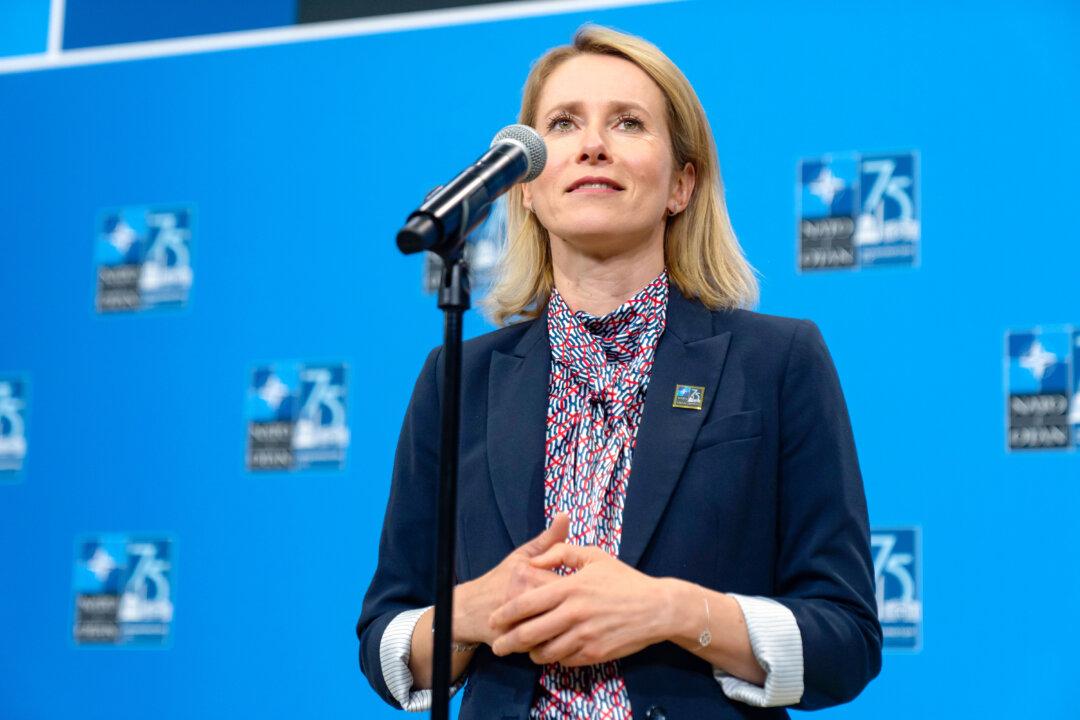HELSINKI—Estonia’s Prime Minister Kaja Kallas has stepped down as the leader of the Baltic country to become the foreign policy chief of the European Union later this year.
Ms. Kallas, Estonia’s first female prime minister, handed in her formal resignation to President Alar Karis during a brief meeting at the Presidential Palace in the capital, Tallinn, on Monday.





